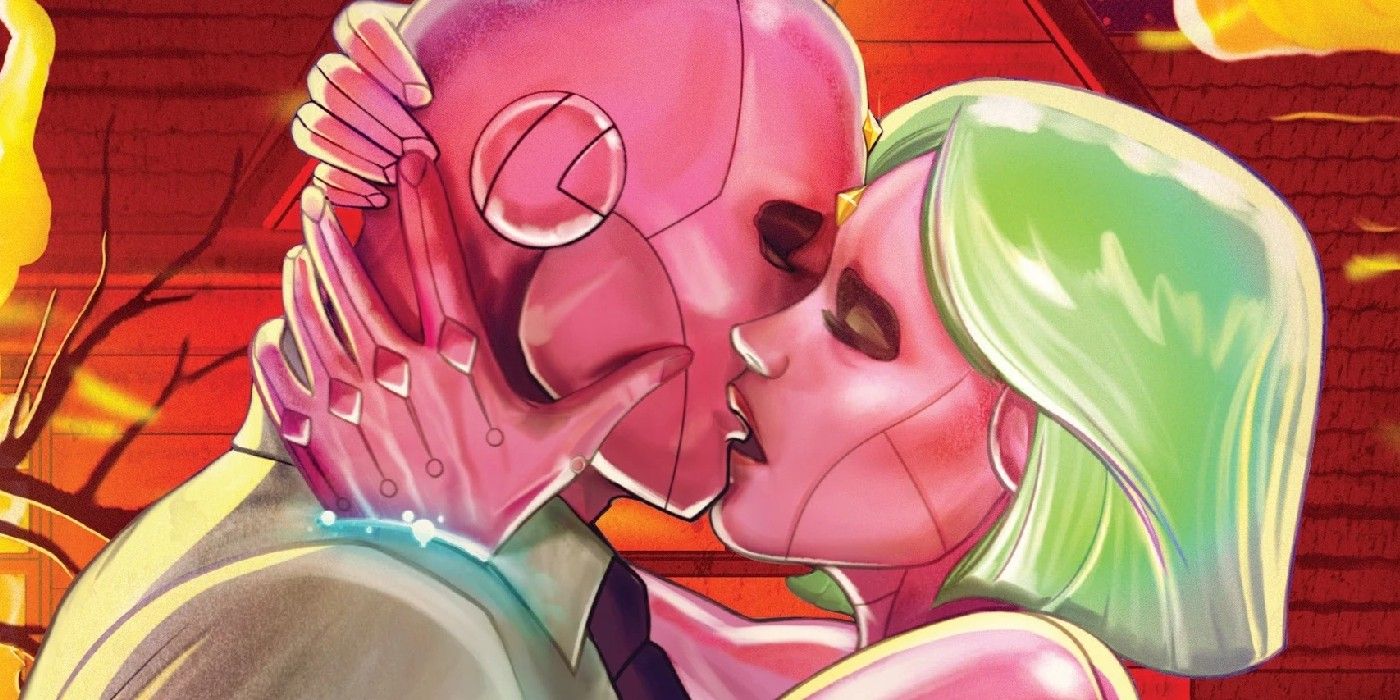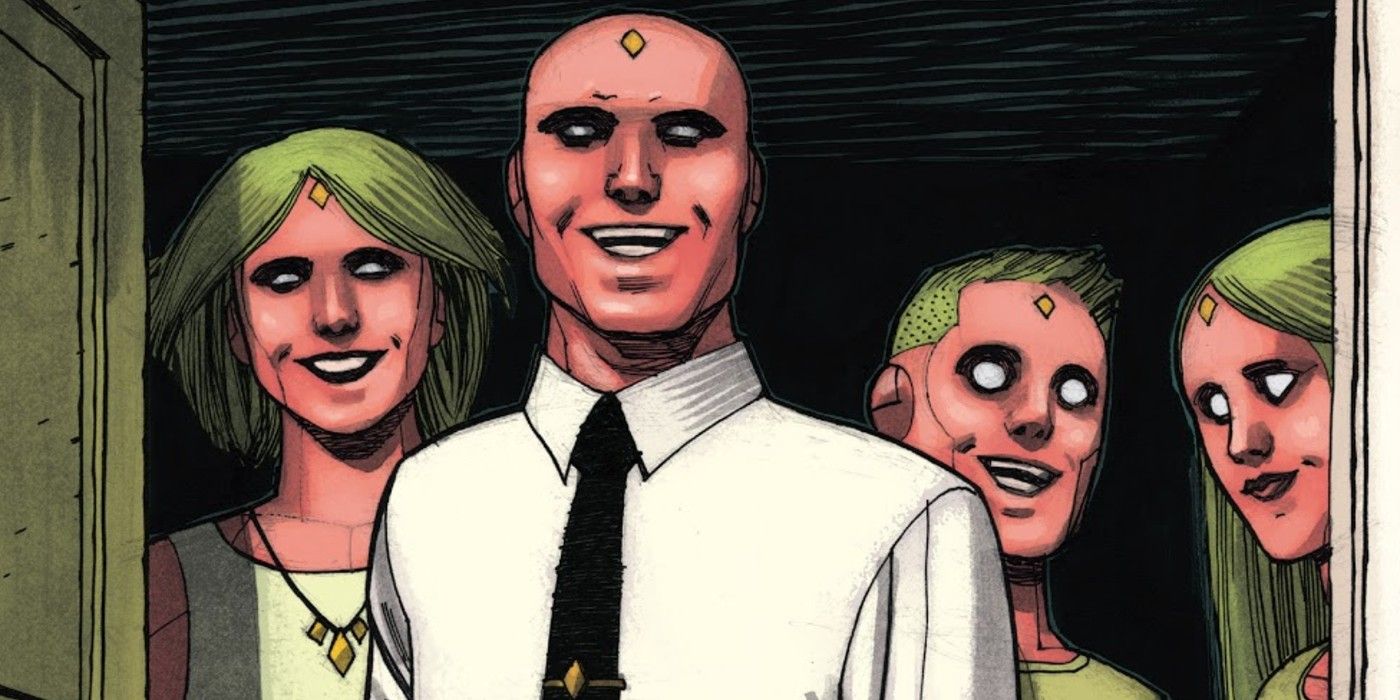Ever since his introduction to Marvel comics in 1968, Vision has always had an inherently unsettling nature. Sketched with vacant black eyes and a menacing red face, John Buscema's original eerie design was befitting for a character created by the villainous Ultron to destroy the Avengers. But what made this android truly compelling was his will to embrace the freedom of choice and stand against his creator's commands. Since then, it's been the Vision's personal mission to forge an identity unto himself and embody the humanity beneath his threatening exterior.
As a result, the Vision's exploits throughout the years have been rightfully steeped in both the uncanny and the profound as the crimson creation continually tries to imitate the best qualities of human beings. And when he married his fellow Avenger, the Scarlet Witch, Vision experienced the most common human emotion of all: love. Sadly, he also eventually felt the loss of that love. After discovering the children they had together were only figments of Wanda's reality-altering powers, the Scarlet Witch suffered a breakdown in which she destroyed Vision. Eventually rebuilt by Tony Stark, Vision pushed Wanda away and carried on his quest for normalcy by moving out to the suburbs of Virginia and creating a new family of synthetic androids modeled in his image.
2015's Vision miniseries by Tom King and Gabriel Hernandez Walta sees the Vision family integrating into their new neighborhood. And despite the fact that they possess the same off-putting attributes and abilities as their creator, this synthezoid family makes a strong play for normalcy. As the two children, Vin and Viv, attend school, Virginia fills the role of the nuclear housewife while Vision attends his mundane (in comparison to being an Avenger) job at the White House. It all seems to add up to Vision's happily ever after until Virginia, while defending her children, murders a man while Vision is away.
This is where Vision's dream life turns into a terrible nightmare. With an ingrained need to maintain normalcy, Virginia buries the corpse in their backyard. The three family members attempt to withhold the secret from Vision and the rest of the world, but the children are overwhelmed with emotion from the experience and start to mentally crack. Meanwhile, Virginia's further attempts to keep her dark secret hidden results in the deaths of two more people. Most shocking of all, when Vision finally discovers the literal family skeleton buried in the backyard, he makes the explicit choice to assist his wife in maintaining the secret, all in the hope of upholding the appearance of a normal, happy family.
After years of Vision longing for humans to accept him as equal, King's miniseries feels like a haunting crescendo to the android Avenger's long-form story arc. So much of what makes the character compelling is his obsessive drive to be as ordinary as everyone else, only to self-destruct from the pressure - a trait that ironically highlights his universal relatability. By applying this concept to a suburban household of Visions, the idea of the nuclear family is brought to the forefront. With their empty, blank-eyed expressions, the Visions are a chilling reflection of a traditional American family that, on the surface, would appear to have it all. And while most families haven't experienced hiding a human body after committing a murder, concealing the darkest parts of one's inner self and the blemishes behind ancestry are intrinsically human oddities. All in all, the scariest thing about Vision and his robotic family might be how like all of us they really are.


